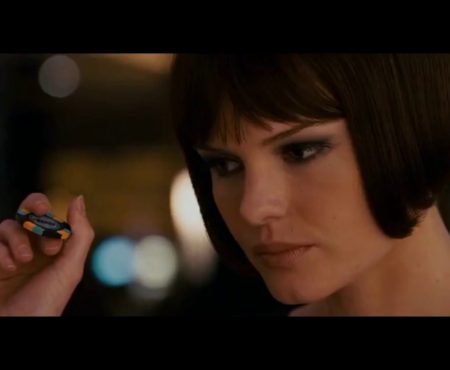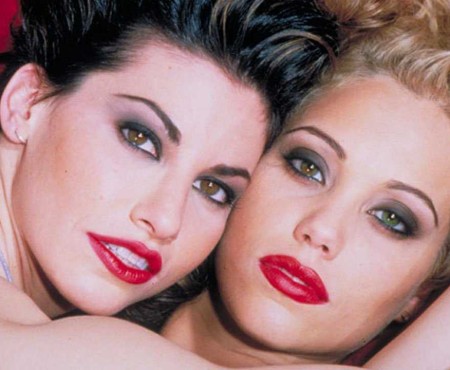A question has come up frequently of late, though it never really goes away, to wit: is a critic under any obligation to render a moral judgment on a film? This piece over at Criticwire addresses the issue directly with regards to the depictions of torture in Zero Dark Thirty, though the same issue has come up in discussions of films like Django Unchained and Beasts of the Southern Wild with regards to race and class. With each of these films, critics praising the aesthetics of each have been accused of ignoring, rationalizing, or even siding with offensive content therein. In response, critics have been forced into a “no I do not” defensive posture, and a great deal of huffiness about art for art’s sake and the primacy of the work over the given critic’s personal beliefs and austere objectivity and so forth has ensued. We are, in brief, at a bit of an impasse.
The most frustrating thing about this particular debate is that this is not an either/or proposition. Every act of criticism is a moral judgment, and not in a glib, media-trolling, mid-’60s Jean-Luc Godard way, either. However objective any critic tries to be in evaluating any work, the evaluation is being conducted by a matrix of observation, cognition, and the innately unique assembly of life experience and education that makes up all the things the critic knows and how s/he knows them. The variance in what a particular critic brings to bear in evaluating a film is why interpretations vary, but on a certain very basic level, a film is always what it is.
With no two matrices of erudition and observational ability being identical, there is thus no one way to approach critiquing a film (or work of art in general, but since this is a film site, and “film” is fewer letters, let’s just stick with that as a term). There are, however, some things not to do. One is, to borrow a phrase from sports journalism, “writing the lede on the way to the ballpark,” which in this context would mean deciding based on the star, director, subject matter, or any other determinant what one’s opinion is before one actually sees the movie. Once it’s over, then whatever relation it has to films by the same artists or about the same topic can be established, not before. The other thing to never do that’s relevant to this particular discussion is approach a film as a checklist of tasks wherein the filmmakers need to tick off boxes, i.e. make explicit stands on political issues, include every single piece of data that exists on an historical subject, and so on. A movie is a finite entity, and it is but one finite entity, it is not a quantum distribution of all possible realities.
The decision a critic makes to approach a movie on its own terms with as much objectivity as s/he can muster is a moral decision. Not everyone succeeds in completely divesting their preexisting baggage. Such is life. But to judge the morality of a critic’s review by the sole question “Does the opinion expressed agree with the one I already hold?” is madness. It presumes criticism to be nothing more than the expressing of an opinion, when the business of criticism is to build a framework through the analysis of a film as it is rather than as the critic would have it be, to support the conclusion. The opinion is the tiny part of the iceberg that appears above water, it is not the whole thing. (Which is a terrible metaphor, by the way, as Titanic was not sunk by negative reviews.)
Rather than immediately dismiss someone with a different critical assessment as wrong (no matter how blatantly, totally wrong that assessment might be) always ask first, “Am I wrong? Are they right?” Consider the possible basis on which your opposing number’s assessment may have been made. Reverse engineer, to the best of your ability, their critical process. If, at the end of this process, the other person is still wrong, then wrong they remain. If, as is more likely, the person in question simply has a different read on the film than you do, then agree to disagree. Unless dealing with a factual inaccuracy, the overwhelming likelihood is that the person with which you disagree simply liked the film more or less than you did. This happens. Two different conclusions can, no matter what binary zealots would have one believe, both be right.





















7 thoughts on “Morality In Criticism”
I also believe critics should be upfront about their prejudices, especially when it comes to subject matter alien to them (i.e. a middle-class white guy talking about racism in Beasts or Django). Honesty leads to discussion which leads to intelligent discourse.
You make a lot of good points about criticism, particularly in terms of personal biases. Something that bothers me when reading reviews and blog posts is when the writer rejects a film because it doesn’t fit they expected from news and previews. In terms of having a moral requirement to address certain issues, it really depends on the type of piece that is being written. If it’s delving closely into what the director and writer are trying to say and discussing themes, then it’s hard to ignore them. However, some writers (for better or worse) are looking solely at their own “enjoyment” and not going much further than that.
Interesting piece and I hardly think we will see the end of it in terms of it being a constant cloud over the word “criticism”. I find it especially interesting because I actually studied criticism, or semiotics to be honest but it comes down to criticism – I was focused on cultural elements such as advertising and movies. What semiotics thought me, is that no opinion is wrong – no criticism is ever wrong of pointing something out or leaving something out! When a critic dismisses racial matters, then for that critic the topic did not stand out as an element of the movie – if the other does, then from their point of view it is an element. Of course it takes away the objectivity of criticism, in a way I think it is impossible to avoid it if one is not writing an academical paper on a movie, but it’s just normal to have a certain voice and criticism in a way is showing your own voice and that could never go against morality. (Except when you are purposely being rude and ignorant – yet another topic).
This is just essay writing 101: consider the opposition. Articulate your stance on a film while considering what might be said in response as a counter. It’s how you get through college-level courses.
And I strongly disagree that criticism is anything more than the expression of opinion. That’s exactly what it is. Critics’ opinions just happen to be backed up by context, knowledge, and analytical skill. I think this especially true given, as you note, there isn’t one right way to critique a film.
I do not think there is any one particular way to approach writing criticism. However, great criticism does tend to rise to the top. It does not take long to understand the abilities of a writer or their understanding of film history, theory, and the overall zeitgeist.
I also disagree that criticism is specifically opinion. An opinion is an opinion. Criticism is using both textual and contextual information to make an informed deconstruction of a text. It’s like breaking open an analog clock to see how it works, and then putting it back together again.
In terms of biases, I tend to see many critics remain in their comfort zone, rarely breaking out into areas beyond their expertise. This includes American-Euro centrism Furthermore, I rarely see fellow critics read and enjoy other art forms.
Pingback: On Morality in Criticism « Reconnoitering the Abyss
Pingback: On Reviews… A “Diatribe” | Cinemaxwell